Talia Minullina: ‘The task of next year is to start developing in the field of offset’
Offset contracts will help Tatarstan manufacturers to establish guaranteed sales of their products, and the region will build new facilities and create production facilities
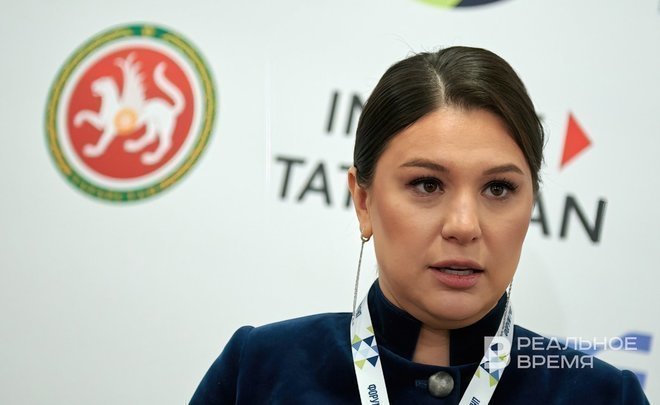
Tatarstan is one step away from the top three regions in the implementation of projects in the field of public-private partnership (PPP). In a couple of years, the republic has moved from the 67th place in the ranking to the 4th. There are 126 PPP projects in the Republic of Tatarstan totalling 113 billion rubles. The first place in this list is occupied by Moscow. Its result is investments worth more than 500 billion rubles. How Tatarstan can enter the top 3 and what mechanisms can help the republic increase the number of PPP projects — in the material of Realnoe Vremya.
Volume of PPP projects reaches 4 trillion rubles
According to the National PPP Centre ANO, 3,494 projects are currently being implemented in Russia using the mechanism of public-private partnership for a total amount of over 5 trillion rubles. Of these, private investments amount to just over 3.7 trillion. The utility and energy sector is leading by a large margin — 2,767 projects. It is followed by the social field — 505 projects. 116 projects are implemented in transport and other areas.
“There are becoming more and more projects in the regions. If we talk about investments already made, the volume is approaching 4 trillion, which have already been physically invested in facilities. About 1.5 trillion more is planned already under the concluded deals. Revenue in annual terms is about 50% of this volume," said Maxim Tkachenko, the executive director of National PPP Centre ANO.
According to him, a very promising niche is public spaces: parks, embankments, as well as the topic of storm sewers is a big problem for cities.
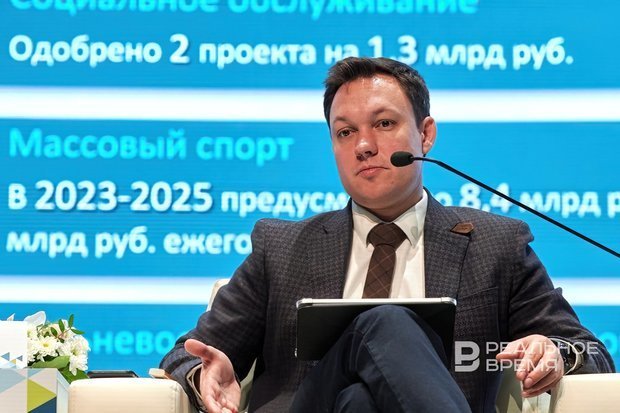
“We are very much waiting and have been talking about the healthcare sector for a long time. One-on-one, for regions without federal support for PPP projects... even small projects in polyclinics cannot be implemented. The second is housing and public utilities. We had a period when different programmes were applied, then there was the Territorial Development Fund, also known as the Housing and Communal Utilities Development Fund. Now the construction is a little unclear — after all, where to get money for housing and communal utilities," Tkachenko added.
From 67th place to 4th
There are currently 126 PPP projects in Tatarstan totalling 113 billion rubles. This was stated by First Deputy Prime Minister of Tatarstan Rustam Nigmatullin, opening the plenary session of the VI Interregional Industry Forum on PPP. This number provides the republic with the fourth place in the thematic federal rating of regions.
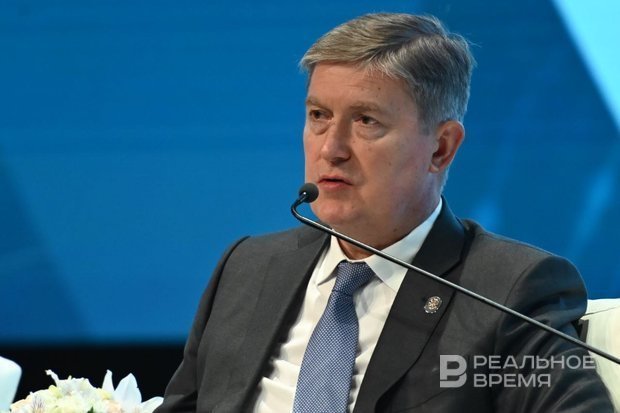
“On the one hand, of course, we are not in the top three. But there is also an explanation for this. Tatarstan is a donor region. Today, we do many social projects at the expense of the budget. Letting private investors in them is not always advisable from a financial point of view. Money can be cheap, and it can be expensive. Financial models of public-private partnerships are often formed in such a way that money is too expensive. Private money. I mean not only private investors, private corporations, but also banks, of course, who are also involved in this work," Talia Minullina, the head of the Investment Development Agency of the Republic of Tatarstan (TIDA), commented on the result.
Nevertheless, according to her, Tatarstan has something to be proud of.
“We are actively moving forward. If you remember, a couple of years ago we were ranked 67th in the ranking, now we are 4th. This is still a lot of work that we have done. What is good about 2023 in the framework of PPP work for Tatarstan? These are, of course, three schools that were commissioned on September 1. These are Kazan, Naberezhnye Chelny, and Arsky Municipal District. The volume of investments there is 7.8 billion rubles. We now have new projects in the field of sports. This construction is taking into account federal subsidies for football arenas. We've already done two. These are Naberezhnye Chelny and Almetyevsk. Our applications have been approved. Now we have submitted two new facilities — Kazan and Zelenodolsk. The work continues on concession agreements in the housing and utilities sector. In the field of healthcare, this year we have received an award as the region that is the best at building interaction between private business and the state in the framework of investment projects. Also this year, the republic received an award for the first toll road. This is a concession that has already been concluded, and now there is an active phase of construction of Shali-Bavly. This is the largest project in recent years in the field of PPP," Minullina listed.
She added that work is currently underway in terms of legislation.
“This year we have released internal, regional documents on offset contracts. In the republic, we are still only forming a regulatory framework. We don't have practice yet. Therefore, the task of next year is to start moving in the field of offset. This is a very good form of guarantee for investors. This is when an investor organises the implementation of an investment project, in fact, his capital investments, for real sales, which is guaranteed by the state," explained the head of the Investment Development Agency.
Offsets for batteries
But Moscow, which occupies the first line of the federal rating with a total investment in PPP projects of more than 500 billion rubles, has been working with offset contracts for the sixth year in a row. The Russian capital is also leading in terms of their number — 75% of all agreements concluded in Russia.
“Our first offset was concluded in 2017. Moscow is the leader in the use of this mechanism," said the acting head of the City Investment Management Agency state institution, Andrey Baluk.
According to him, the city guarantees investors implementing projects in the Russian capital a long-term sale of their products, because such an agreement is concluded for up to 10 years.
“If you are interested in creating a production of high-tech products or products aimed at import substitution, then we provide such guarantees. This helps to lay down the economics of the project, understand how it will be implemented, and implement it. As for the guarantee of net profit in offset, the Budget Code has exceptions for such contracts. The decision on offset contracts is made by the supreme executive authority. In fact, we can provide budget commitments for a longer period," Baluk said.
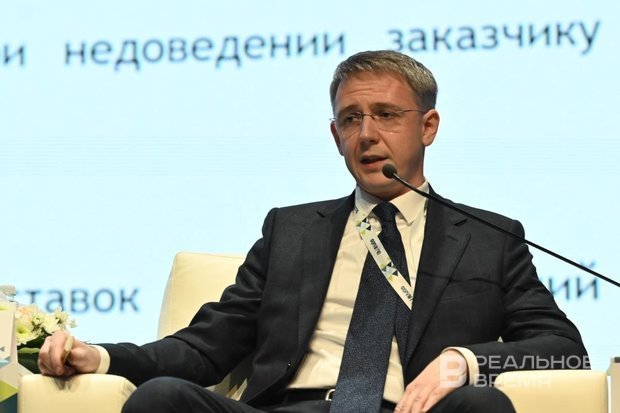
He added that half of all offset contracts in Moscow are medicines.
“We had a task within the whole country to solve the issue of drug safety. It's no secret that 90% of medicines are made from imported substances. In this regard, the offset contract mechanism allows us to provide for obligations to localise the production of domestic substances at our facilities," the head of the City Investment Management Agency stressed.
Besides, about 15-20% more are medical products, food. Baluk also spoke about the conclusion of the largest offset contract in Russia, which provides for the construction of a battery manufacturing plant.
“Its volume is 172 billion rubles for 6 years. We have agreed with Rosatom Group, with Renera company. They are building a factory for the production of rechargeable batteries. In exchange, we guaranteed the purchase of more than 150 thousand batteries for electric buses, for the Moskvich car, for water transport, trams, scooters. Without using such mechanisms, it will not be possible to create such productions. To date, batteries are manufactured in China. The plant is still under construction in Kaliningrad. In the current situation, when foreign markets are closed and we can support our producers at the expense of domestic demand, this is the only tool that will allow businesses to fully implement their projects," Baluk is sure.
Moscow is calling to the market
Besides, he recalled the existence of another mechanism that is provided for by law, but is not used.
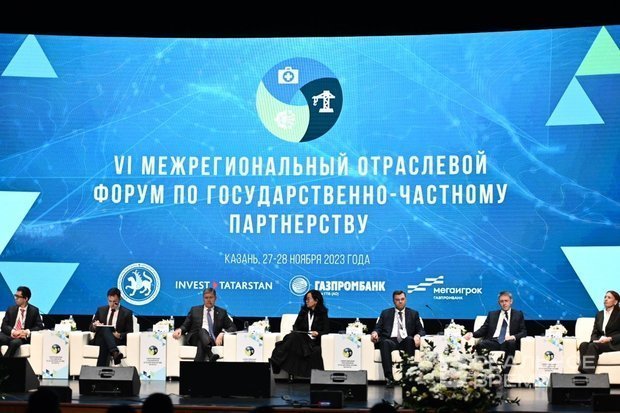
“These are interregional offset contracts. We have already concluded two agreements. The first are with Samara Oblast and the Republic of Karelia. We are signing the third one in the near future. The mechanism is very interesting from the point of view of development and assistance to the regions from Moscow as the largest customer in Russia," the head of the City Investment Management Agency shared.
He emphasised that the agency's doors are open to investors from Tatarstan.
“We are very interested in implementing such a project with the Republic of Tatarstan, to see investors who are already implementing their projects here and supplying their products for the needs of the city of Moscow," Baluk summed up.
Maxim Tkachenko also spoke about the support of investors. He focused on the current key rate and its negative impact on the PPP mechanism.
“With a key rate of 15% and a rate above 20% on projects, this is a barrier for any PPP in the world. There is no PPP in such indicators. Either we should develop a mechanism for subsidising the interest rate, or significantly increase the amount of budget leverage in projects, which we would not like to do, or we should offer preferential funding instruments like Dom.RF. But also DOM.RF's rate will grow significantly due to the current key. And this is a serious challenge for the market," the head of the National PPP Center warned.